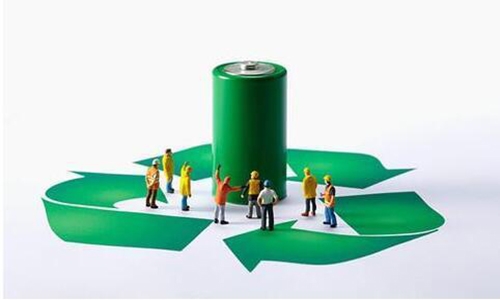At present, lithium-ion batteries are getting closer to civilian life, mainly the popularity of mobile digital electronic products. The application of lithium-ion batteries has gradually expanded to electric bicycles and hybrid cars. The market for some lead-acid batteries has gradually been eroded by lithium batteries. But not completely replaced.

Although every household has a lot of lithium-ion batteries (discarded mobile phone batteries, etc.), its recycling is currently limited to the inside of manufacturing companies, mainly the lithium cobalt oxide, nickel-cobalt-manganese lithium, the noble metal cobalt, the negative graphite, Fluid aluminum, copper (ultra high purity), housing, etc. Just like the waste recycling seen in the streets and lanes, there is a natural value to recycle, but the pollution is not reduced.
I believe that there are three main types of pollution problems in lithium batteries:
1. The pollution caused by the cleaning of the positive and negative pulping equipment and the coating equipment during the production process, the two are including the positive and negative electrode materials, NMP, glue and other substances, some enterprises are not well controlled (malicious speculation does not want to control) leading to toxic Waste water leaks.
2. The cleaning of the electrolyte during the production process may cause the water containing the electrolyte to flow into the sewer. In general, technology developers are likely to discharge water directly into the sewer.
3. NMP recovery is not complete.
4. There are very few lithium batteries circulating in the market. First, the lithium battery itself is less polluted, and everyone pays less attention. Second, the lithium battery recycling revenue is low.
Now, lithium-ion batteries are liquid electrolytes, that is, a variety of organic solvents, lithium salts and other components, among which there are many toxic and harmful even carcinogens; future solid-state electrolyte lithium-ion batteries may be popular, this is another. Compared with lead acid, everyone knows that electric bicycle sellers are very motivated to recycle lead-acid batteries and the public is very happy. The reason is that maintenance-free lead-acid battery recycling is very mature, and society and enterprises have fulfilled their obligations and recycling. responsibility. At the user end, there is no pollution as long as it is not destroyed. The production of lead-acid batteries is also the same. The pollutants are mainly lead powder. They will not be poisoned without contact without inhalation; the electrolyte is water solvent and sulfuric acid. In addition, the lead-acid enterprises have formed an oligopoly after the country's vigorous rectification, and the product quality is relatively reliable. Lithium battery companies are uneven. Everyone should have experienced the battery drum, sudden capacity reduction, short life and other similar situations. Serious or even explosive accidents. Lithium-ion batteries are overcharged and easily affected. There is a danger of burning. The manufacturing process is also the same, the toxicity of organic solvents forms sewage, dust pollution, and multiple fire accidents.
The team used hydrometallurgical technology to recover cobalt and lithium from a 48.8Wh lithium battery during laboratory-grade testing.
This process involves first baking the battery in an oven at 700 degrees Celsius, "calcining" cobalt, lithium and copper, destroying organic compounds such as plastics and foam. This calcined material carries metals and metal compounds (salts and oxides), which are then extracted with strong acids, hydrochloric acid and sulfuric acid to extract metal ions. The team used hydrogen peroxide as a reducing agent to test whether the reagent could improve the leaching process. They are able to extract lithium at about 50% efficiency and extract cobalt at about 25% efficiency. Because these metals represent 41% and 8.5% of the weight of the 48.8Wh battery, respectively.
Feasibility:
Since these metals represent 41% and 8.5% of the weight of the 48.8Wh battery, respectively, the overall extraction rate is higher, and the combination of heat and acid constitutes a commercially viable solution for recycle the electrodes of these batteries.
Finally, this leaching metal can be used to make new batteries or for other industrial applications. This contaminated liquid waste can be further safely recycled.



